
by Ria Olivier | Sep 30, 2022 | Announcement, Jobs, SAPRI
SAPRI – Transforming, Consolidating and Strengthening Polar Sciences
 Four new positions are available as part of the SAPRI professional development acceleration program which ties in with the SAPRI transformation drive. These positions are not the integrated facility coordinator positions, but they are growth positions within each IF. The South African Environmental Observation Network (SAEON) is a research platform funded by the Department of Science and Innovation (DSI) and managed by the National Research Foundation (NRF). SAEON is mandated to establish and manage long-term environmental observatories; maintain reliable long-term environmental data sets; promote access to data for research and/or informed decision-making; and contribute to capacity building. These positions are supported by the DSI’s South African Polar Research Infrastructure (SAPRI) programme.
Four new positions are available as part of the SAPRI professional development acceleration program which ties in with the SAPRI transformation drive. These positions are not the integrated facility coordinator positions, but they are growth positions within each IF. The South African Environmental Observation Network (SAEON) is a research platform funded by the Department of Science and Innovation (DSI) and managed by the National Research Foundation (NRF). SAEON is mandated to establish and manage long-term environmental observatories; maintain reliable long-term environmental data sets; promote access to data for research and/or informed decision-making; and contribute to capacity building. These positions are supported by the DSI’s South African Polar Research Infrastructure (SAPRI) programme.
 From SAPRI Proposal: “South Africa is in dire need of transformation and capacity development within the polar science community. A key aspect of the uniqueness of South African Antarctic science is that it is the only African country involved on the Antarctic continent, and therefore has a leadership role to play in promoting African Antarctic science. Whereas SAPRI represents the transformation of an existing system and a new way of doing, the issue of transformation along demographic criteria is pertinent for SAPRI. The SAPRI needs to develop young black and / or female scientists, technicians and engineers. Antarctic research should not only be a workspace for those who study environmental science, but also attainable to those who study engineering, social sciences, creative arts, journalism, law, finance and management. SAPRI will promote the multidisciplinary nature of research possibilities in the Antarctic sphere, expanding our reach, our research footprint and the diversity of our community.”
From SAPRI Proposal: “South Africa is in dire need of transformation and capacity development within the polar science community. A key aspect of the uniqueness of South African Antarctic science is that it is the only African country involved on the Antarctic continent, and therefore has a leadership role to play in promoting African Antarctic science. Whereas SAPRI represents the transformation of an existing system and a new way of doing, the issue of transformation along demographic criteria is pertinent for SAPRI. The SAPRI needs to develop young black and / or female scientists, technicians and engineers. Antarctic research should not only be a workspace for those who study environmental science, but also attainable to those who study engineering, social sciences, creative arts, journalism, law, finance and management. SAPRI will promote the multidisciplinary nature of research possibilities in the Antarctic sphere, expanding our reach, our research footprint and the diversity of our community.”
 Research Coordinator – Data, Products and Society
Research Coordinator – Data, Products and Society
Research Coordinator – Oceans and Atmosphere
Research Coordinator – Polar Lab
Research Coordinator – Terrestrial
Please note SAEON/SAPRI has some data curator, ocean modelling and Senior IT systems administrator positions open, all of them can be found here.
It is important to note firstly that these are not pure academic/science positions but the aim is to train people in a broader scope of work, although there is a science component; secondly, the candidates do not have to have experience in the Southern Ocean/polar field but they do need to have experience in the relevant field.

by Ria Olivier | Aug 1, 2022 | Announcement, Antarctica, Jobs, Overwintering Team, SANAE, SANAP, Stations, Team member

Applications are now open!
Application deadline: 15 August 2022.
View all positions on the JOBS page

by Ria Olivier | Jan 19, 2022 | Announcement, Jobs, Marion Island, Overwintering Team, Research, SANAP, Science, Stations, Team member
Do you have a BSc (Hons) degree in the ecological field? This might be an opportunity for you!
Two Ecological Field Assistants/Researchers needed for the 2022/2023 overwintering team on the South African, sub-Antarctic Marion Island.
This is an opportunity not the be missed!
Deadline: 21 January 2022.
Always keep an eye on the SANAP Jobs page, where all vacancies on Marion Island, Gough Island and Antarctica are advertised.
Anche Louw, Antarctic Legacy of South Africa, 19 January 2022.

by Ria Olivier | Oct 11, 2021 | Announcement, Jobs, Marion Island

 Job opportunities available on Marion Island Overwintering Team – download the job description below and complete a Z83 available on the website. Closing date for applications is 18 October 2021.
Job opportunities available on Marion Island Overwintering Team – download the job description below and complete a Z83 available on the website. Closing date for applications is 18 October 2021.

The purpose of the Z83 is to assist a government department in selecting a person for an advertised post. This form may be used to identify candidates to be interviewed. Since all applicants cannot be interviewed, you need to fill in this form completely, accurately and legibly. This will help to process your application fairly.

by Ria Olivier | Dec 11, 2020 | Announcement, geochemistry, Jobs, Oceanography, Research, SA Agulhas II, SANAP, Science, Southern Ocean
The Biogeochemistry Research Infrastructure Platform (BIOGRIP) was established in 2019 in terms of the South African Research Infrastructure Roadmap, a high-level research strategy of the national government Department of Science and Innovation.


 BIOGRIP comprises four research ‘nodes’ based at the Universities of Cape Town (focusing on isotope biogeochemistry), Stellenbosch (water and soil biogeochemistry), Free State (mineral biogeochemistry) and North-West University (atmospheric biogeochemistry), with the administrative ‘hub’ located at UCT. The Director will be based at UCT and will report directly to the DVC Research. The Director will (1) provide strong leadership and scientific guidance to the BIOGRIP platform as a whole, ensuring that it delivers on its mandate (2) liaise with stakeholders, the management steering committee and scientific and technical advisory committees (3) hold overall financial responsibility for BIOGRIP and (4) contribute to the research output of BIOGRIP.
BIOGRIP comprises four research ‘nodes’ based at the Universities of Cape Town (focusing on isotope biogeochemistry), Stellenbosch (water and soil biogeochemistry), Free State (mineral biogeochemistry) and North-West University (atmospheric biogeochemistry), with the administrative ‘hub’ located at UCT. The Director will be based at UCT and will report directly to the DVC Research. The Director will (1) provide strong leadership and scientific guidance to the BIOGRIP platform as a whole, ensuring that it delivers on its mandate (2) liaise with stakeholders, the management steering committee and scientific and technical advisory committees (3) hold overall financial responsibility for BIOGRIP and (4) contribute to the research output of BIOGRIP.


 “Biogeochemistry” is the study of how biological, geological, chemical, and physical processes interact to shape natural environments over time and space. It covers a range of interdisciplinary research foci, from the origin and diversification of life, to how anthropogenic drivers alter modern environments, to the response of natural systems to environmental change. Biogeochemistry was identified by the 2016 South African Research Infrastructure Roadmap (SARIR) document as an emerging interdisciplinary field of strategic importance. SARIR recommends that the central objective of biogeochemical research in South Africa should be to gain “further insight into the interactions of human activity and the environment over the past several hundred millennia and to determine how the environmental impact of anthropogenic activity has contributed to the change in Earth system dynamics (chemical, physical and biological). This includes the search for an understanding of the behavior of well characterized and emerging pollutants and their current impact on the environment”. There are a number of strong research groups in South Africa already investigating various aspects of this broad research objective, but their efforts to-date have been isolated and/or fragmented. Moreover, biogeochemistry requires high precision data and measurements of a vast range of inorganic and organic chemical components, including isotope ratios and trace elements, some of which cannot currently be made in South Africa and many of which cannot be run at the volume and quality required. The investment in BIOGRIP will provide the platform to drive biogeochemical knowledge creation through investment in (1) technical capacity, training and scientific leadership in biogeochemical research, (2) world-class analytical facilities, and (3) improved monitoring of biogeochemical environmental variables through the generation and compilation of statistically meaningful datasets.
“Biogeochemistry” is the study of how biological, geological, chemical, and physical processes interact to shape natural environments over time and space. It covers a range of interdisciplinary research foci, from the origin and diversification of life, to how anthropogenic drivers alter modern environments, to the response of natural systems to environmental change. Biogeochemistry was identified by the 2016 South African Research Infrastructure Roadmap (SARIR) document as an emerging interdisciplinary field of strategic importance. SARIR recommends that the central objective of biogeochemical research in South Africa should be to gain “further insight into the interactions of human activity and the environment over the past several hundred millennia and to determine how the environmental impact of anthropogenic activity has contributed to the change in Earth system dynamics (chemical, physical and biological). This includes the search for an understanding of the behavior of well characterized and emerging pollutants and their current impact on the environment”. There are a number of strong research groups in South Africa already investigating various aspects of this broad research objective, but their efforts to-date have been isolated and/or fragmented. Moreover, biogeochemistry requires high precision data and measurements of a vast range of inorganic and organic chemical components, including isotope ratios and trace elements, some of which cannot currently be made in South Africa and many of which cannot be run at the volume and quality required. The investment in BIOGRIP will provide the platform to drive biogeochemical knowledge creation through investment in (1) technical capacity, training and scientific leadership in biogeochemical research, (2) world-class analytical facilities, and (3) improved monitoring of biogeochemical environmental variables through the generation and compilation of statistically meaningful datasets.


 BIOGRIP will provide significant opportunities to advance South Africa’s research infrastructure and technical capacity in the field of biogeochemistry, while also facilitating a high level of scientific impact on a range of temporal and spatial scales. BIOGRIP will extend the practical research questions that address specific South African problems to include those that are purely curiosity-driven, creative, and/or risky, while also deepening the extent to which ongoing research themes can be probed. An additional impact of developing analytical capacity in-country is the potential for creative methods development, particularly South African-specific applications (e.g., for research questions relevant to the Cape floristic kingdom, hominin evolution, water availability and quality, Antarctic ecosystems, etc.). This will allow the South African research community to push the frontiers of knowledge in a variety of fields where biogeochemical techniques have yet to be applied (or have yet to be applied at the resolution offered by BIOGRIP).
BIOGRIP will provide significant opportunities to advance South Africa’s research infrastructure and technical capacity in the field of biogeochemistry, while also facilitating a high level of scientific impact on a range of temporal and spatial scales. BIOGRIP will extend the practical research questions that address specific South African problems to include those that are purely curiosity-driven, creative, and/or risky, while also deepening the extent to which ongoing research themes can be probed. An additional impact of developing analytical capacity in-country is the potential for creative methods development, particularly South African-specific applications (e.g., for research questions relevant to the Cape floristic kingdom, hominin evolution, water availability and quality, Antarctic ecosystems, etc.). This will allow the South African research community to push the frontiers of knowledge in a variety of fields where biogeochemical techniques have yet to be applied (or have yet to be applied at the resolution offered by BIOGRIP).
Click here for advertisement. Closing date: 1st February 2021
Photo Credit: Sarah Fawcett, Alakendra Roychoudhury, Susanne Fietz
Cover Image: Ben van der Walt

by Ria Olivier | Nov 9, 2020 | Announcement, Antarctica, Jobs, Research, Science, Southern Ocean

 Dr. Sarah Fawcett of the Department of Oceanography at University of Cape Town is part of the Weddell Sea and Dronning Maud Land (WS-DML) Working Group (WG). A great opportunity for an early career scientist has become available within this group to become the APECS representative.
Dr. Sarah Fawcett of the Department of Oceanography at University of Cape Town is part of the Weddell Sea and Dronning Maud Land (WS-DML) Working Group (WG). A great opportunity for an early career scientist has become available within this group to become the APECS representative.
 The group facilitates coordinated and standardized observational studies of major physical, chemical and biological variables including their drivers and interactions. This refers to a regional but also a circum-Antarctic approach. The WS-DML WG will contribute to an increase in quality of the science output and strengthen the awareness of the relevance of research in the WS-DML sector of the Southern Ocean through international projects contributing to the SOOS. The Working Group is open for involvement to anyone working in the Weddell Sea and Dronning Maud Land region. (Report of 2019)
The group facilitates coordinated and standardized observational studies of major physical, chemical and biological variables including their drivers and interactions. This refers to a regional but also a circum-Antarctic approach. The WS-DML WG will contribute to an increase in quality of the science output and strengthen the awareness of the relevance of research in the WS-DML sector of the Southern Ocean through international projects contributing to the SOOS. The Working Group is open for involvement to anyone working in the Weddell Sea and Dronning Maud Land region. (Report of 2019)
The WS-DML-WG is looking for an early career scientist to join the SOOS Southern Ocean Weddell Sea and Dronning Maud Land Sector Regional Working Group and become our APECS representative. The successful applicant will have working knowledge of observational research of the Southern Ocean with a particular interest in the Weddell Sea and Dronning Maud Land. The APECS representative will attend RWG meetings, and be responsible for assisting with data collection, curation, and reportage, and will be an important link in liaising between APECS and SOOS. We are interested in receiving applications from any countries, including those not yet represented by the WG Leadership Group. For specific questions on this position, please contact Alyce Hancock (alyce.hancock@utas.edu.au).
The position will be for 2 years and non-salaried, but there will be travel reimbursement for attending one meeting if the working group holds a meeting during your term, and potential for co-authorship of publications.
To apply, you need to meet the following criteria:
– Early career researcher (up to 5 years past PhD)
– Have a research background that fits the focus of the group
To apply send the following information to info@apecs.is by 15 Dec 2020
– your CV
– Statement of Interest (max one page), including your research background,
– your motivation in joining the working group,
– your thoughts on how you can contribute to the group
– how this would benefit your career
The SOOS WS-DML WG aims to fulfill the following terms of reference:
Develop and enable regional-scale observing using SOOS best practice for observing systems, including areas from which data sets already exist, to detect long-term changes.
Identify physical, geochemical and biological key processes and their coupling in areas of the WS-DML region under climate change as well as in presently stable areas expected to experience warming and melting of sea-ice in the future.
Identify and assemble key legacy data sets and sampling techniques.
Provide best practice sampling protocols to enable the standardization of measurements.
Based on the experience in the region, identify data gaps and bottlenecks in the observation systems that hinder a comprehensive understanding of the physical, geochemical and biological systems.
Facilitate coordinated and, where possible, multi-disciplinary observations.
Make plans of operations available on the SOOS website to increase collaboration amongst the international community.
Facilitate procedures to achieve data availability across the science community according to SOOS data policy, which includes the publication of data and meta-data.
Convene focussed sessions at international meetings, including SCAR, SCOR and their scientific initiatives, and facilitate synthesis products, to increase the awareness of the science community to the importance of the Weddell Sea – Dronning Maud Land region. Also joint events with the International Arctic Science Committee (IASC) on polar comparative observations and analysis as well as should be supported.
Provide support to the International Program Office (IPO) by providing short reports to be available at the SOOS SSC annual meeting, as well as providing content for the IPO website/newsletters on the activities and outcome.
Contribute to international initiatives assessing the state of the SO, especially with reference to climate change, pollution and the exploitation of natural resources.
Support stakeholders with scientific information, especially the initiative to develop an MPA; support the MPA management plan after its endorsement.
Credit Cover Image: Weddell Sea gallery

 Four new positions are available as part of the SAPRI professional development acceleration program which ties in with the SAPRI transformation drive. These positions are not the integrated facility coordinator positions, but they are growth positions within each IF. The South African Environmental Observation Network (SAEON) is a research platform funded by the Department of Science and Innovation (DSI) and managed by the National Research Foundation (NRF). SAEON is mandated to establish and manage long-term environmental observatories; maintain reliable long-term environmental data sets; promote access to data for research and/or informed decision-making; and contribute to capacity building. These positions are supported by the DSI’s South African Polar Research Infrastructure (SAPRI) programme.
Four new positions are available as part of the SAPRI professional development acceleration program which ties in with the SAPRI transformation drive. These positions are not the integrated facility coordinator positions, but they are growth positions within each IF. The South African Environmental Observation Network (SAEON) is a research platform funded by the Department of Science and Innovation (DSI) and managed by the National Research Foundation (NRF). SAEON is mandated to establish and manage long-term environmental observatories; maintain reliable long-term environmental data sets; promote access to data for research and/or informed decision-making; and contribute to capacity building. These positions are supported by the DSI’s South African Polar Research Infrastructure (SAPRI) programme. From SAPRI Proposal: “South Africa is in dire need of transformation and capacity development within the polar science community. A key aspect of the uniqueness of South African Antarctic science is that it is the only African country involved on the Antarctic continent, and therefore has a leadership role to play in promoting African Antarctic science. Whereas SAPRI represents the transformation of an existing system and a new way of doing, the issue of transformation along demographic criteria is pertinent for SAPRI. The SAPRI needs to develop young black and / or female scientists, technicians and engineers. Antarctic research should not only be a workspace for those who study environmental science, but also attainable to those who study engineering, social sciences, creative arts, journalism, law, finance and management. SAPRI will promote the multidisciplinary nature of research possibilities in the Antarctic sphere, expanding our reach, our research footprint and the diversity of our community.”
From SAPRI Proposal: “South Africa is in dire need of transformation and capacity development within the polar science community. A key aspect of the uniqueness of South African Antarctic science is that it is the only African country involved on the Antarctic continent, and therefore has a leadership role to play in promoting African Antarctic science. Whereas SAPRI represents the transformation of an existing system and a new way of doing, the issue of transformation along demographic criteria is pertinent for SAPRI. The SAPRI needs to develop young black and / or female scientists, technicians and engineers. Antarctic research should not only be a workspace for those who study environmental science, but also attainable to those who study engineering, social sciences, creative arts, journalism, law, finance and management. SAPRI will promote the multidisciplinary nature of research possibilities in the Antarctic sphere, expanding our reach, our research footprint and the diversity of our community.”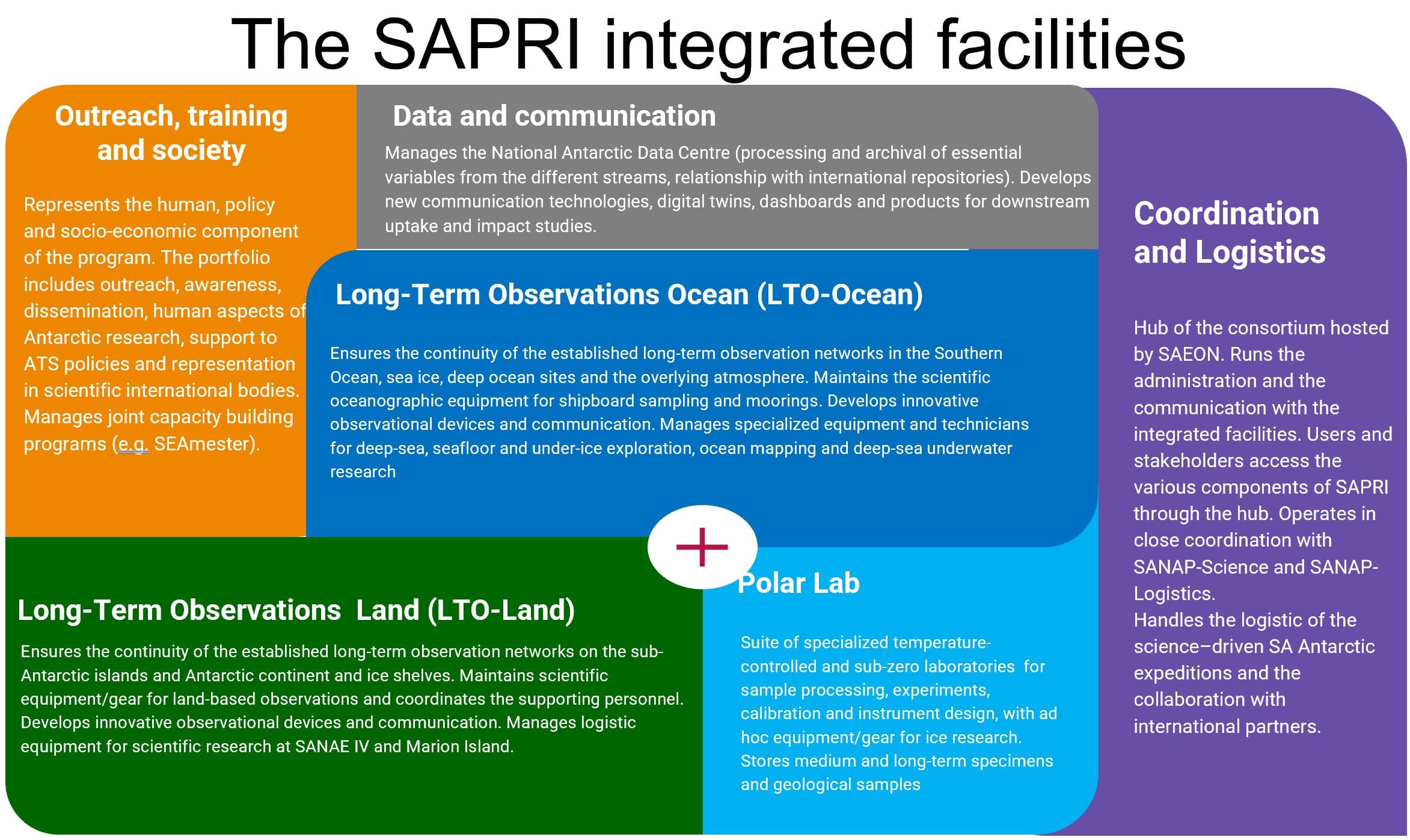 Research Coordinator – Data, Products and Society
Research Coordinator – Data, Products and Society
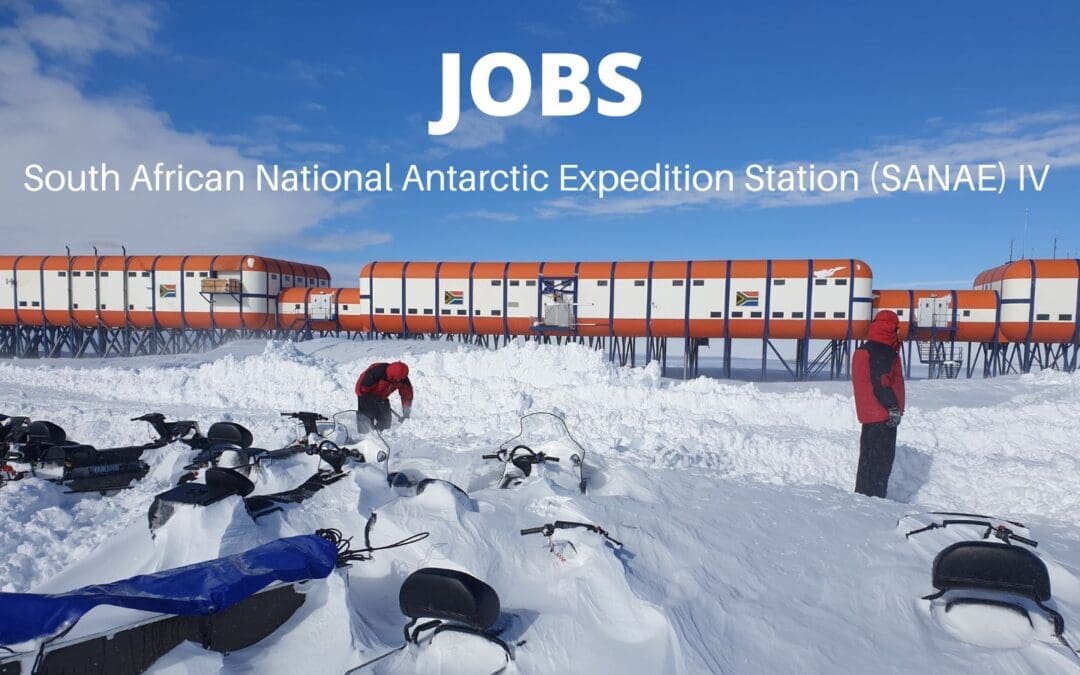
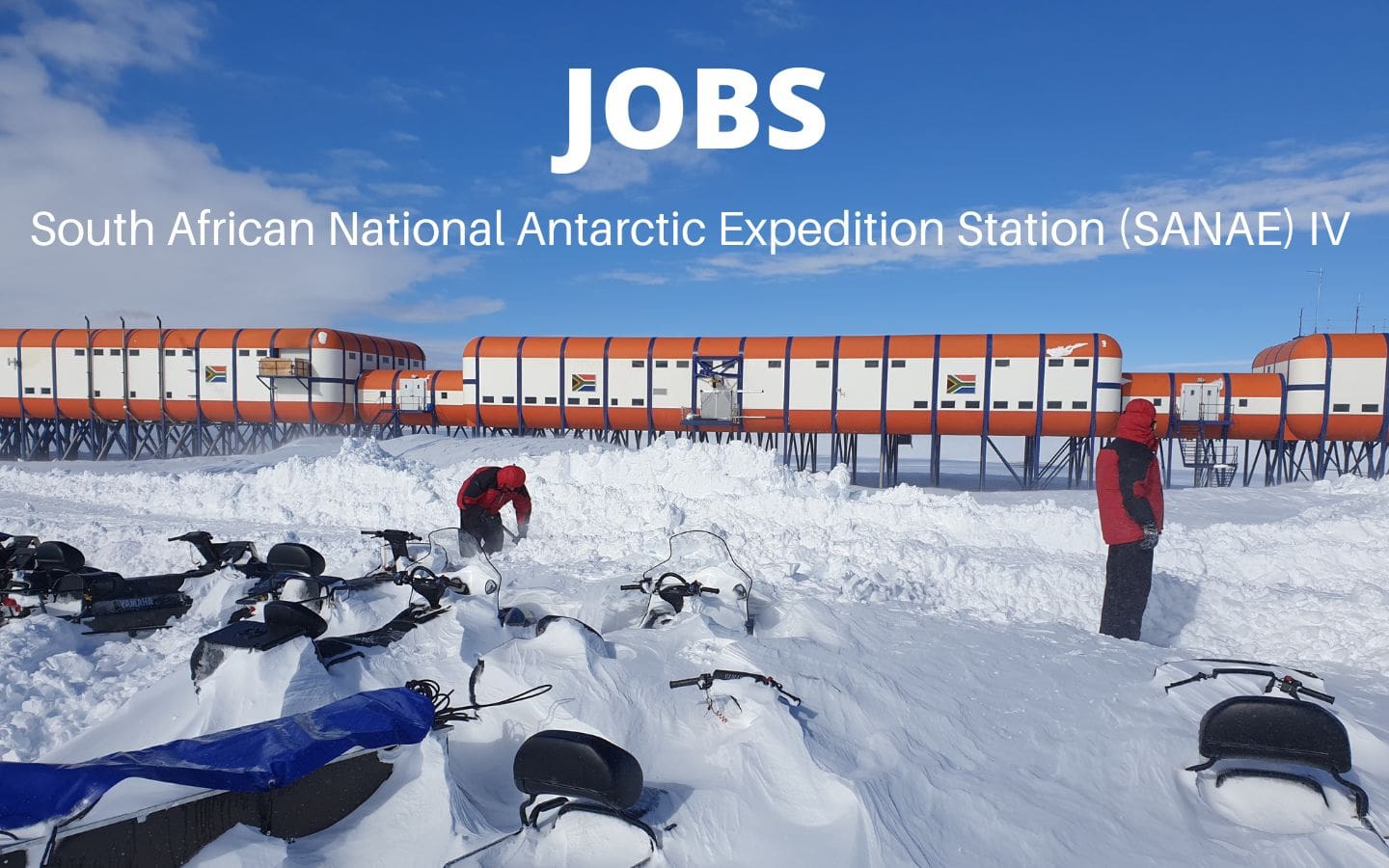
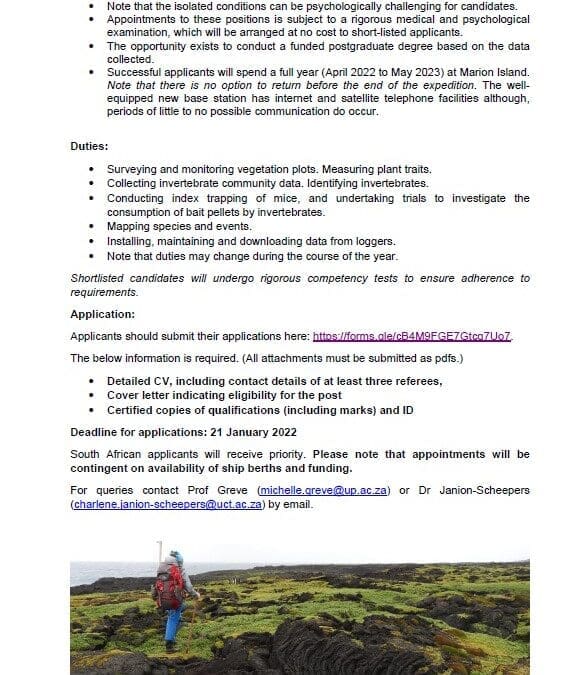
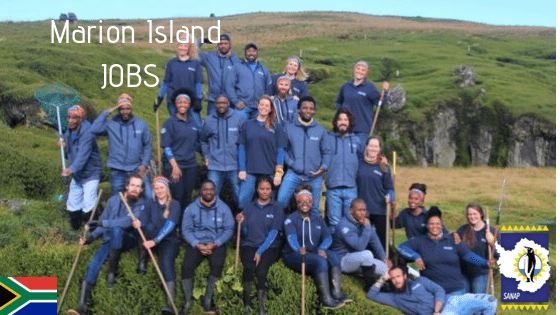

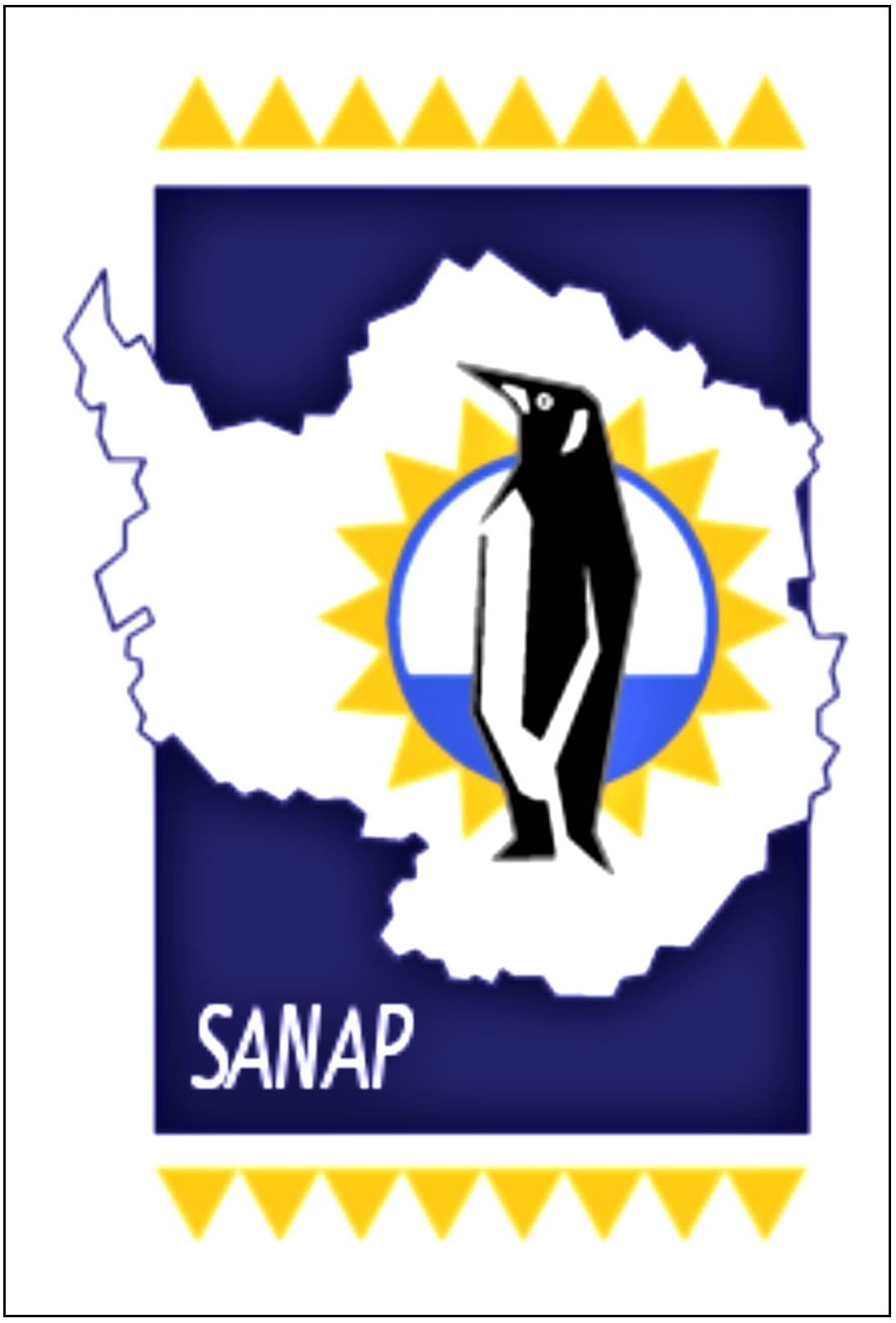 Job opportunities available on
Job opportunities available on 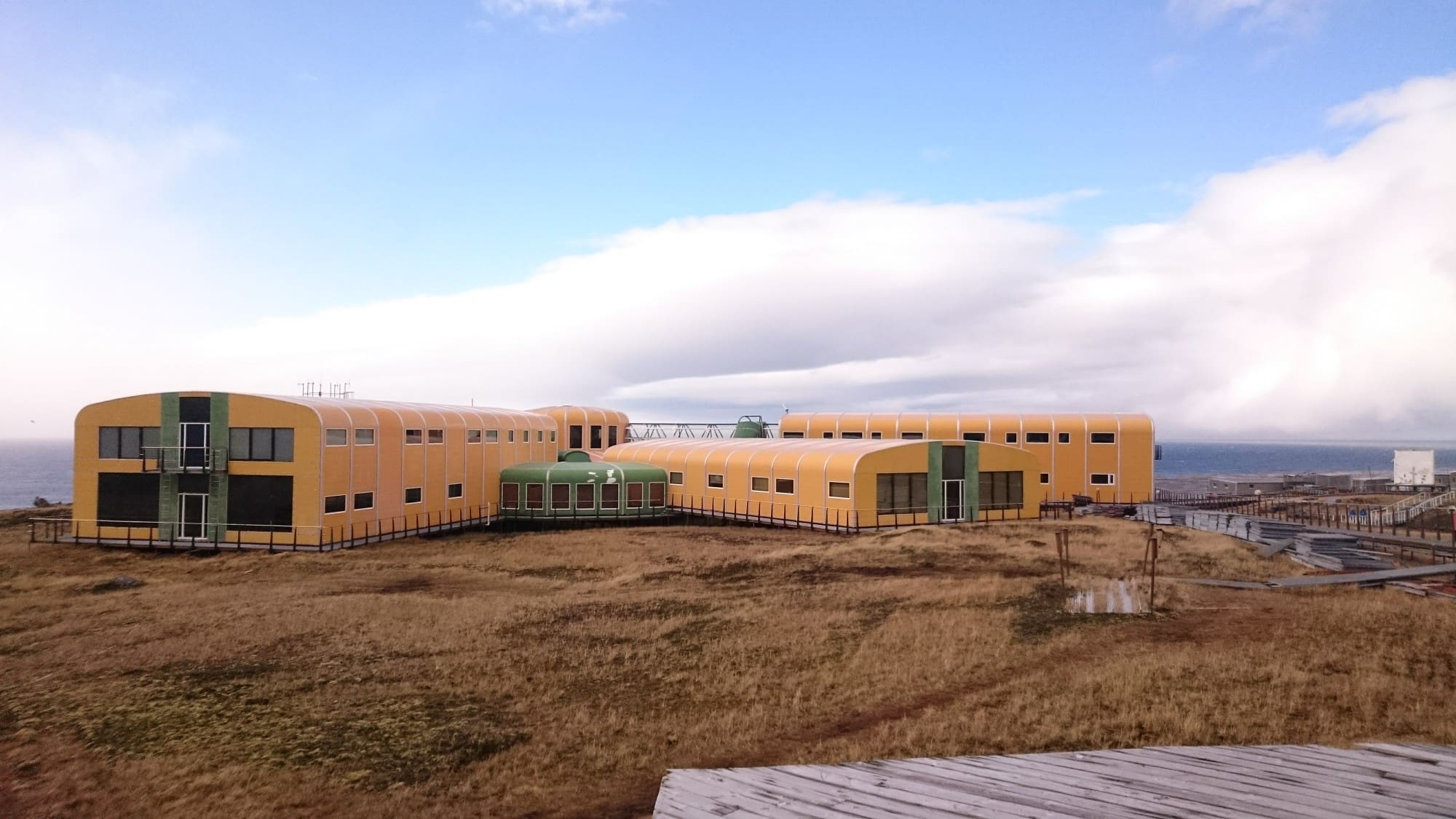

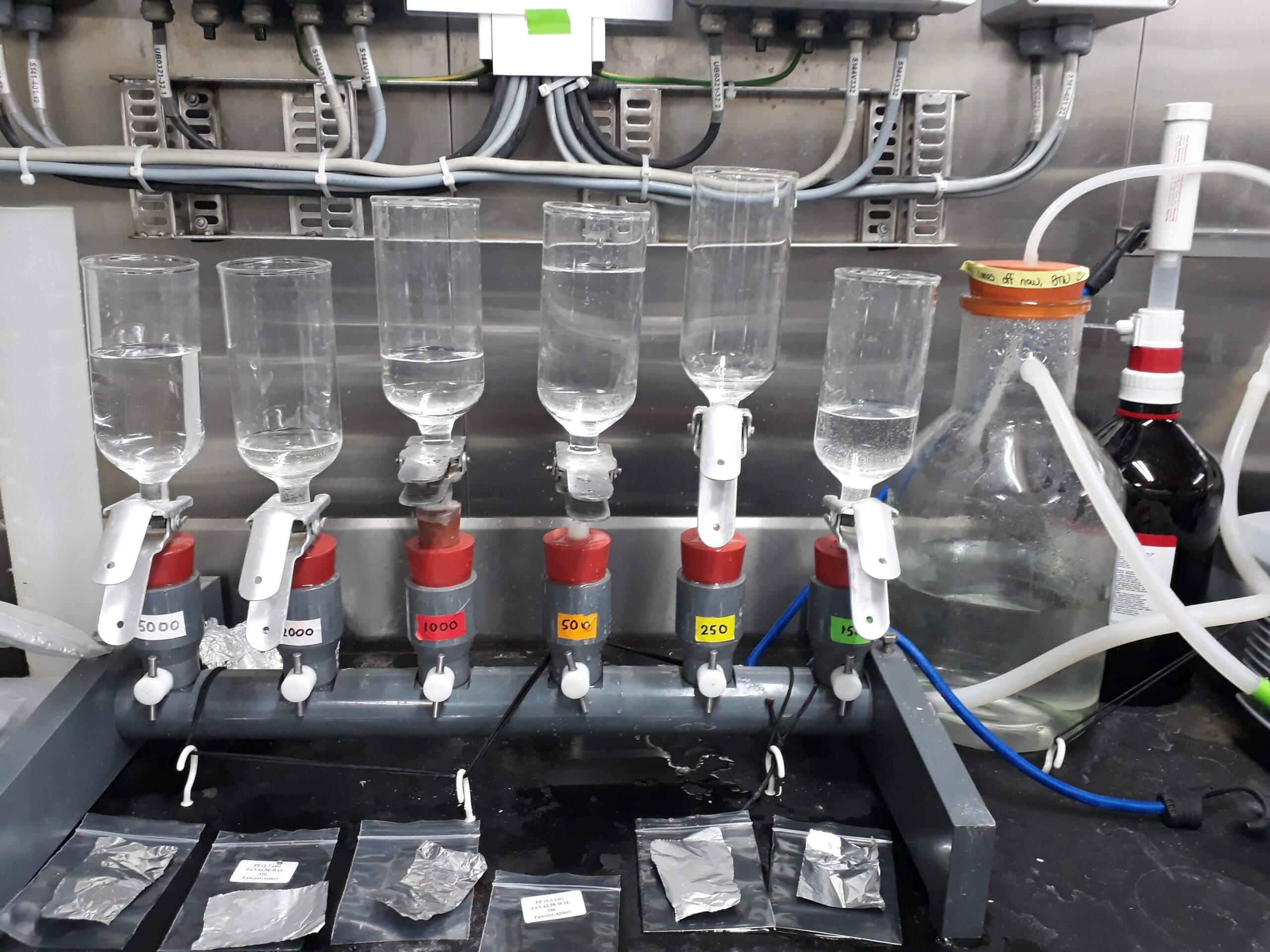
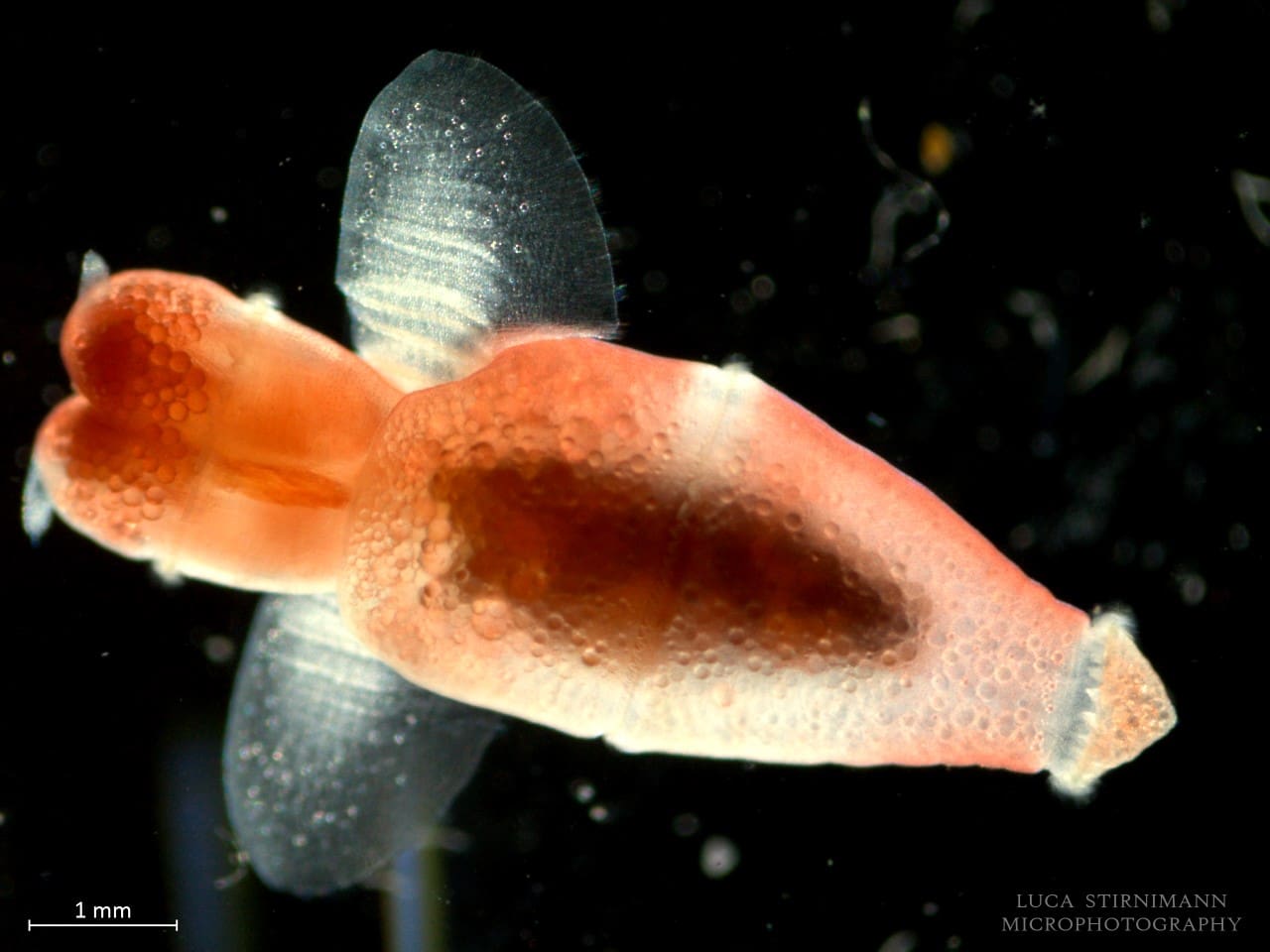
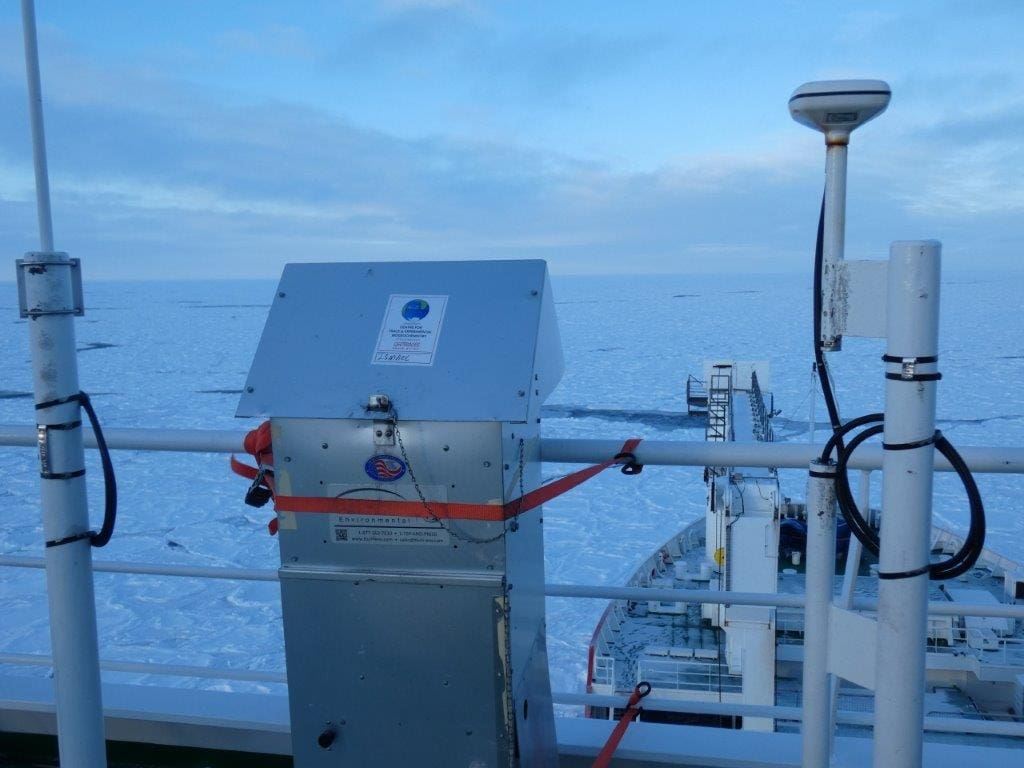 BIOGRIP comprises four research ‘nodes’ based at the Universities of Cape Town (focusing on isotope biogeochemistry), Stellenbosch (water and soil biogeochemistry), Free State (mineral biogeochemistry) and North-West University (atmospheric biogeochemistry), with the administrative ‘hub’ located at UCT. The
BIOGRIP comprises four research ‘nodes’ based at the Universities of Cape Town (focusing on isotope biogeochemistry), Stellenbosch (water and soil biogeochemistry), Free State (mineral biogeochemistry) and North-West University (atmospheric biogeochemistry), with the administrative ‘hub’ located at UCT. The 
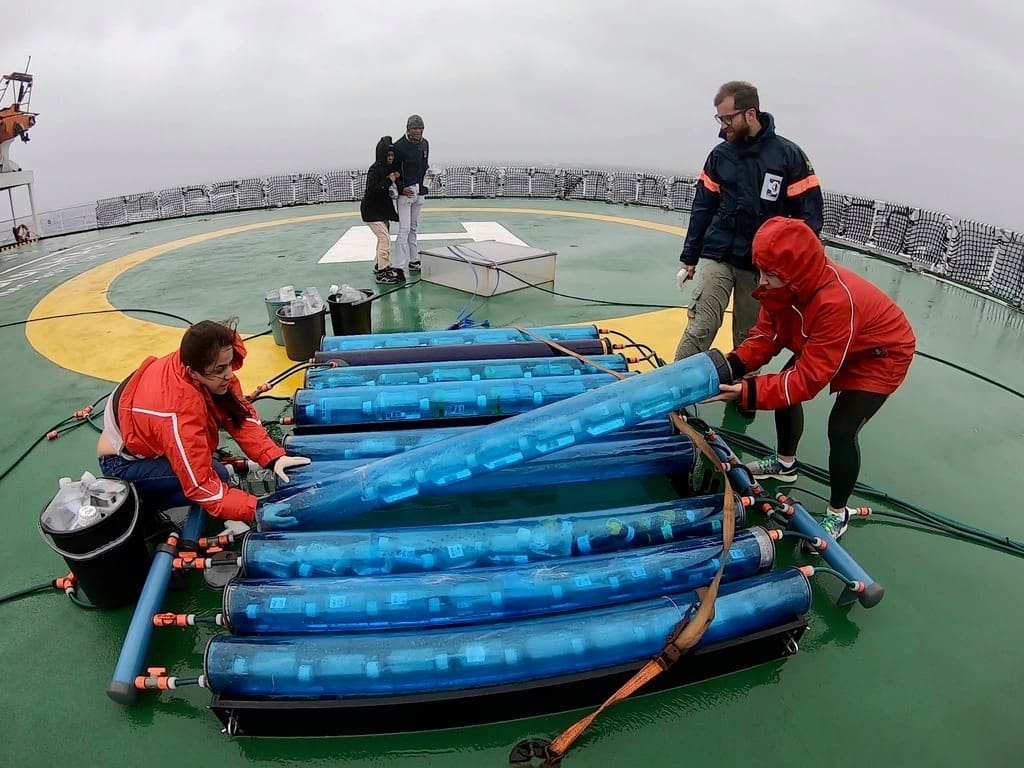
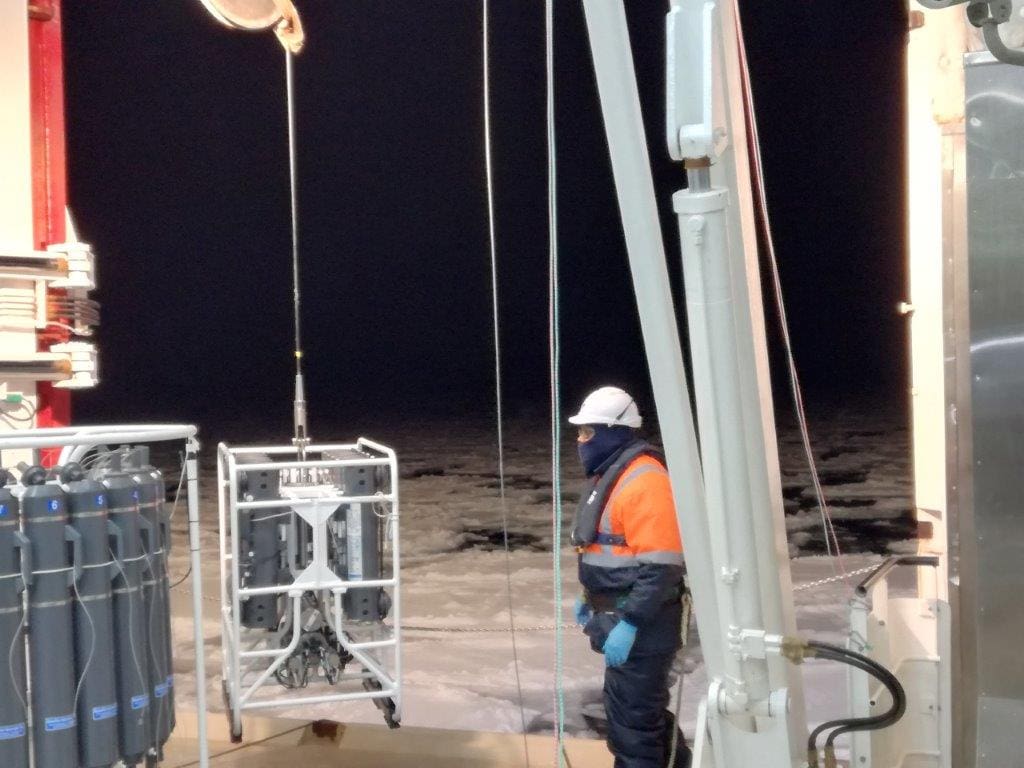 “Biogeochemistry” is the study of how biological, geological, chemical, and physical processes interact to shape natural environments over time and space. It covers a range of interdisciplinary research foci, from the origin and diversification of life, to how anthropogenic drivers alter modern environments, to the response of natural systems to environmental change. Biogeochemistry was identified by the 2016 South African Research Infrastructure Roadmap (SARIR) document as an emerging interdisciplinary field of strategic importance. SARIR recommends that the central objective of biogeochemical research in South Africa should be to gain “further insight into the interactions of human activity and the environment over the past several hundred millennia and to determine how the environmental impact of anthropogenic activity has contributed to the change in Earth system dynamics (chemical, physical and biological). This includes the search for an understanding of the behavior of well characterized and emerging pollutants and their current impact on the environment”. There are a number of strong research groups in South Africa already investigating various aspects of this broad research objective, but their efforts to-date have been isolated and/or fragmented. Moreover, biogeochemistry requires high precision data and measurements of a vast range of inorganic and organic chemical components, including isotope ratios and trace elements, some of which cannot currently be made in South Africa and many of which cannot be run at the volume and quality required. The investment in BIOGRIP will provide the platform to drive biogeochemical knowledge creation through investment in (1) technical capacity, training and scientific leadership in biogeochemical research, (2) world-class analytical facilities, and (3) improved monitoring of biogeochemical environmental variables through the generation and compilation of statistically meaningful datasets.
“Biogeochemistry” is the study of how biological, geological, chemical, and physical processes interact to shape natural environments over time and space. It covers a range of interdisciplinary research foci, from the origin and diversification of life, to how anthropogenic drivers alter modern environments, to the response of natural systems to environmental change. Biogeochemistry was identified by the 2016 South African Research Infrastructure Roadmap (SARIR) document as an emerging interdisciplinary field of strategic importance. SARIR recommends that the central objective of biogeochemical research in South Africa should be to gain “further insight into the interactions of human activity and the environment over the past several hundred millennia and to determine how the environmental impact of anthropogenic activity has contributed to the change in Earth system dynamics (chemical, physical and biological). This includes the search for an understanding of the behavior of well characterized and emerging pollutants and their current impact on the environment”. There are a number of strong research groups in South Africa already investigating various aspects of this broad research objective, but their efforts to-date have been isolated and/or fragmented. Moreover, biogeochemistry requires high precision data and measurements of a vast range of inorganic and organic chemical components, including isotope ratios and trace elements, some of which cannot currently be made in South Africa and many of which cannot be run at the volume and quality required. The investment in BIOGRIP will provide the platform to drive biogeochemical knowledge creation through investment in (1) technical capacity, training and scientific leadership in biogeochemical research, (2) world-class analytical facilities, and (3) improved monitoring of biogeochemical environmental variables through the generation and compilation of statistically meaningful datasets.

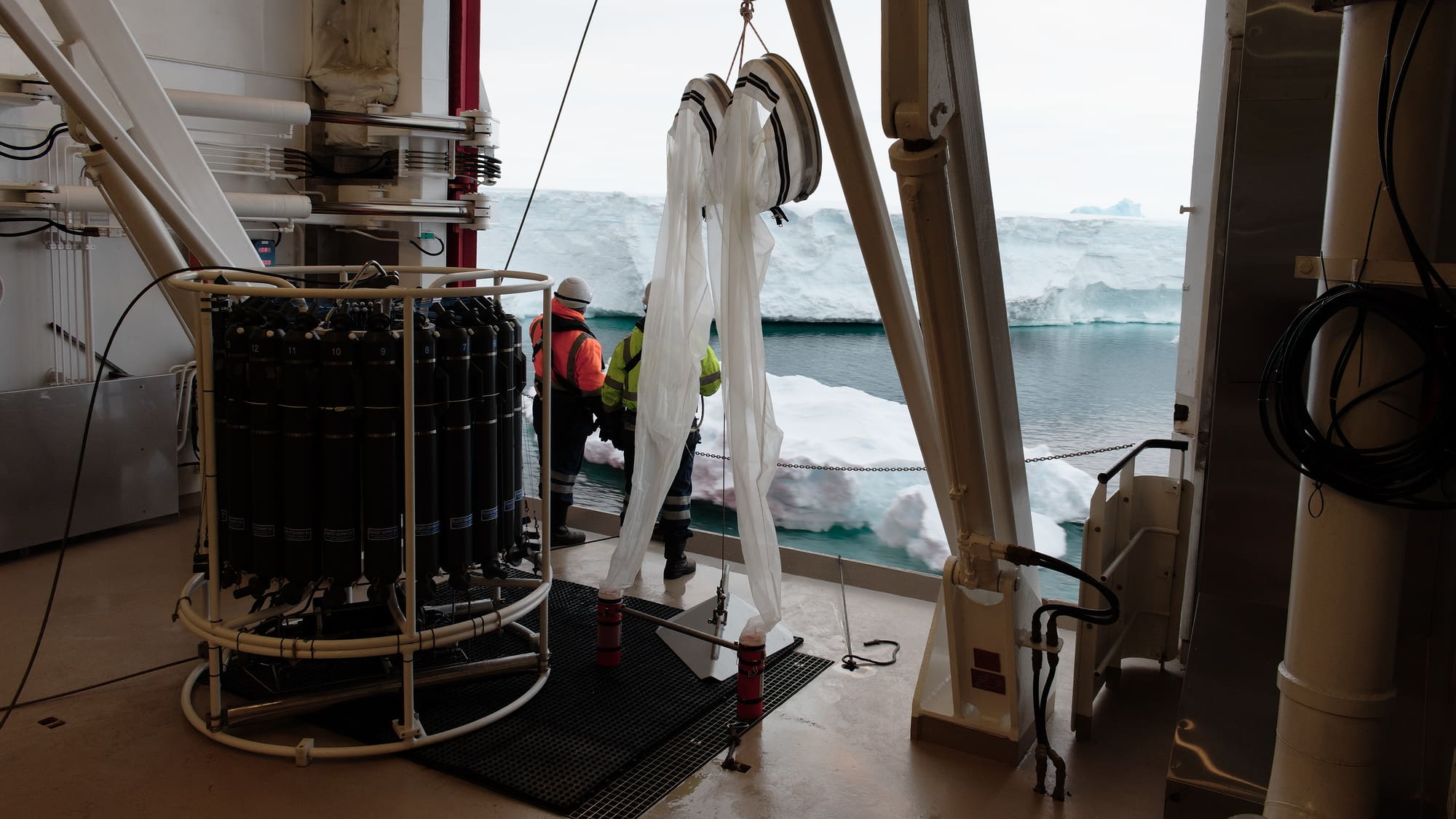 BIOGRIP will provide significant opportunities to advance South Africa’s research infrastructure and technical capacity in the field of biogeochemistry, while also facilitating a high level of scientific impact on a range of temporal and spatial scales. BIOGRIP will extend the practical research questions that address specific South African problems to include those that are purely curiosity-driven, creative, and/or risky, while also deepening the extent to which ongoing research themes can be probed. An additional impact of developing analytical capacity in-country is the potential for creative methods development, particularly South African-specific applications (e.g., for research questions relevant to the Cape floristic kingdom, hominin evolution, water availability and quality, Antarctic ecosystems, etc.). This will allow the South African research community to push the frontiers of knowledge in a variety of fields where biogeochemical techniques have yet to be applied (or have yet to be applied at the resolution offered by BIOGRIP).
BIOGRIP will provide significant opportunities to advance South Africa’s research infrastructure and technical capacity in the field of biogeochemistry, while also facilitating a high level of scientific impact on a range of temporal and spatial scales. BIOGRIP will extend the practical research questions that address specific South African problems to include those that are purely curiosity-driven, creative, and/or risky, while also deepening the extent to which ongoing research themes can be probed. An additional impact of developing analytical capacity in-country is the potential for creative methods development, particularly South African-specific applications (e.g., for research questions relevant to the Cape floristic kingdom, hominin evolution, water availability and quality, Antarctic ecosystems, etc.). This will allow the South African research community to push the frontiers of knowledge in a variety of fields where biogeochemical techniques have yet to be applied (or have yet to be applied at the resolution offered by BIOGRIP).


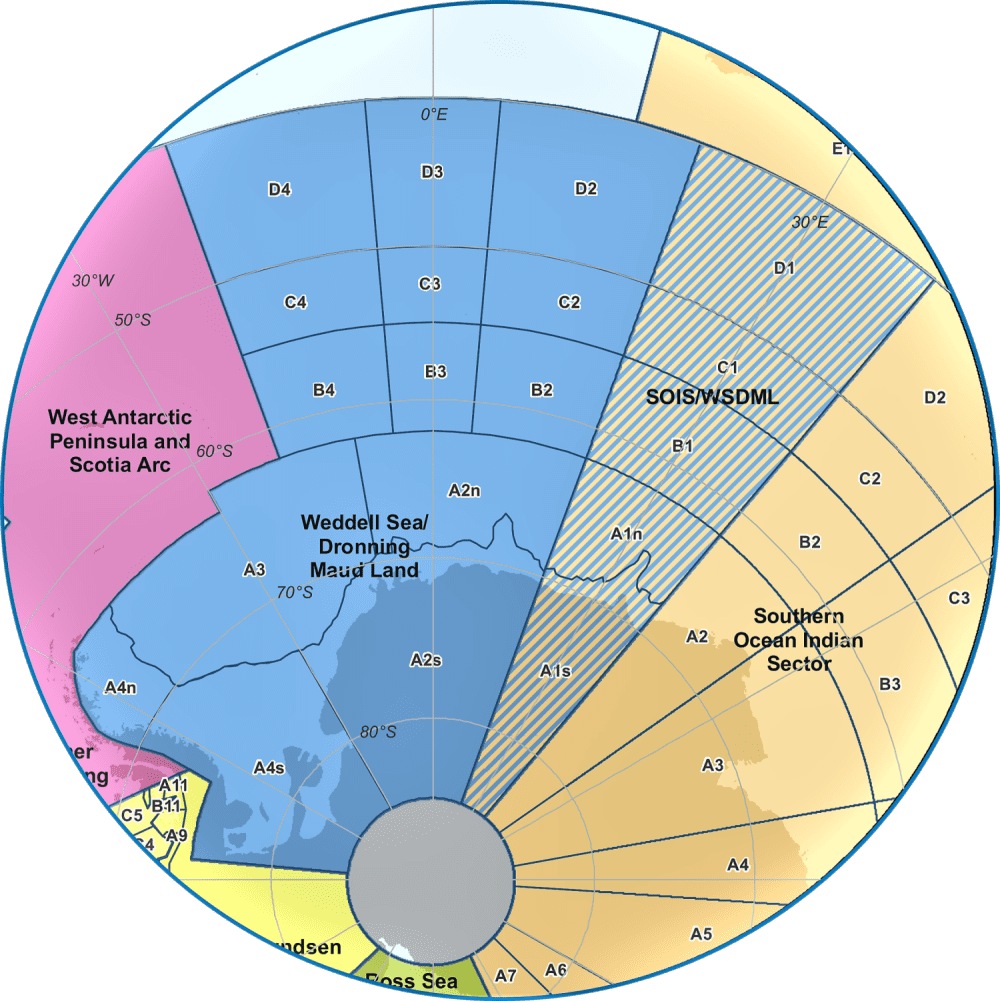 The group facilitates coordinated and standardized observational studies of major physical, chemical and biological variables including their drivers and interactions. This refers to a regional but also a circum-Antarctic approach. The WS-DML WG will contribute to an increase in quality of the science output and strengthen the awareness of the relevance of research in the WS-DML sector of the Southern Ocean through international projects contributing to the
The group facilitates coordinated and standardized observational studies of major physical, chemical and biological variables including their drivers and interactions. This refers to a regional but also a circum-Antarctic approach. The WS-DML WG will contribute to an increase in quality of the science output and strengthen the awareness of the relevance of research in the WS-DML sector of the Southern Ocean through international projects contributing to the 




